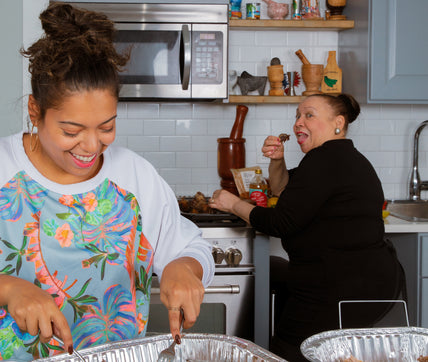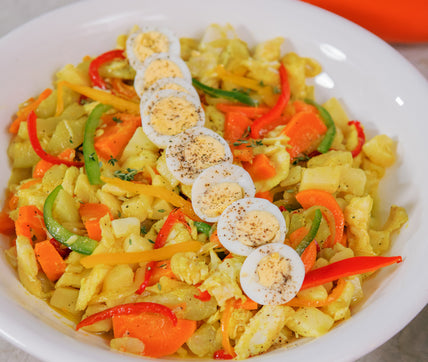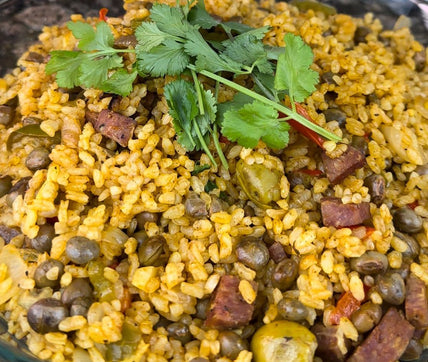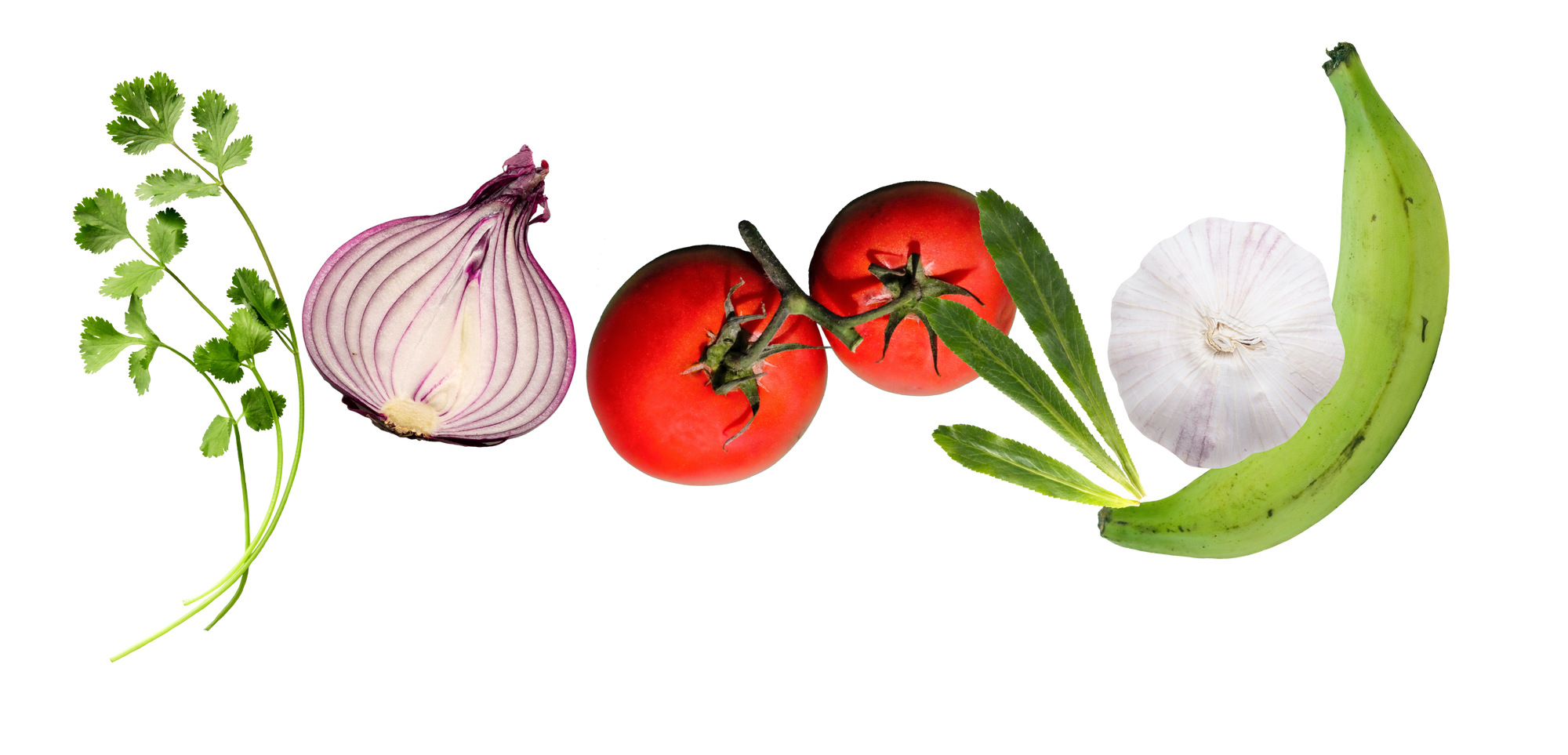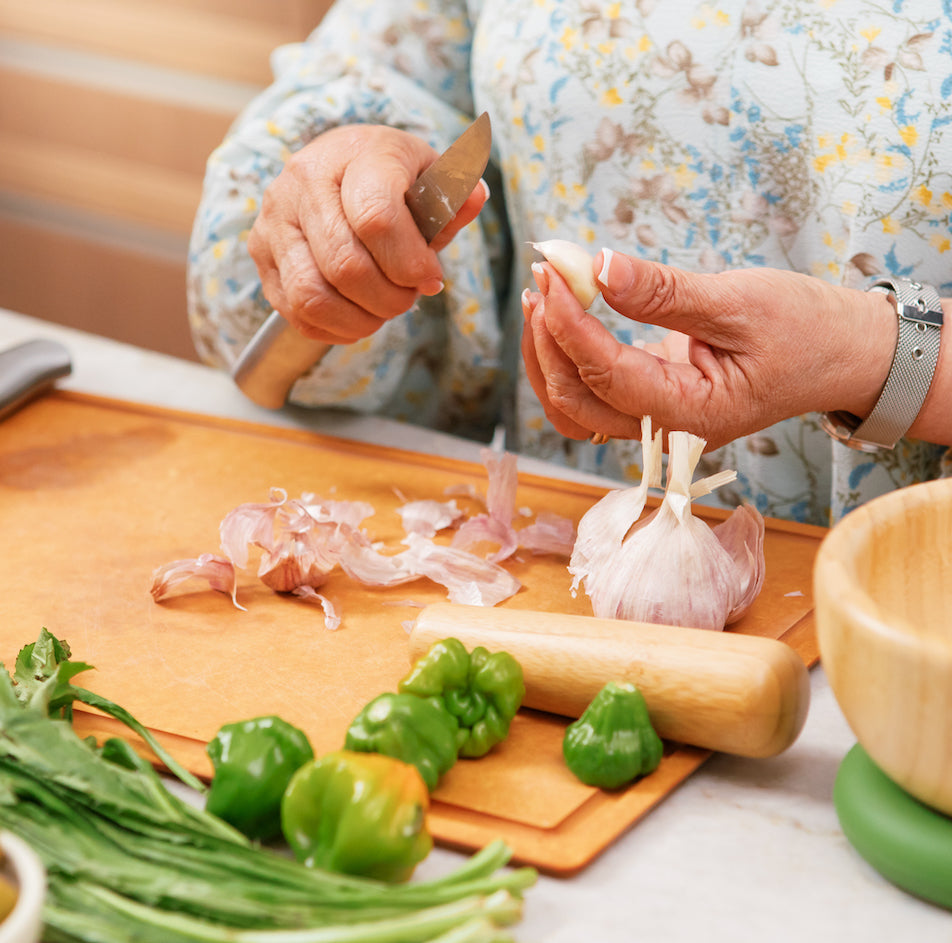
Three Empowering Lessons Learned from Family Matriarchs
Lessons learned from family matriarchs en la cocina.
By Janel Martinez | @janelm
Madres. Abuelas. Bisabuelas. Madrinas y Tías. Each holds an irreplaceable role in a family’s lineage. These matriarchs not only sustain their families through motherhood, but via the archives they pass down, traditions they preserve — including heirloom recipes — and the lessons shared through their own experiences.
The kitchen is just as much of a place to prepare sancocho or locrio as it is a safe space for lessons to be taught, directly or indirectly, to loved ones. Whether you’re a sous-chef, helping mamá peel the plátanos, or an observer waiting for the meal to be served, you’ll receive more than cooking advice. But staple ingredients and recipes — a.k.a. wisdom — you can refer to throughout your life. In honor of Mother’s Day, we tapped three storytellers to share the gems passed down from their family matriarchs.
Lesson 1: Create Time for Yourself
from Gloria Malone, writer, content creator and host of a new food-centered podcast with AfroResistance
The earthy scent of chamomile tea instantly reminds Gloria Malone of her late grandmother. As a young girl, she’d peek into the tiny pot her abuela set on the stove wondering how the herbal blend would make the entire home feel cozy. She would watch her intuitively add in the fresh tea leaves as she customized her own combination.
She’d ask, inquisitively: “What is this?” “Tea,” her abuela would reply. After asking her what type of tea, she followed up with “El té que me gusta.”
It was later in life that Malone would realize her abuela was enjoying camomile tea. Her regular tea ritual would serve as a reminder to establish “me time.” “That was her way of creating time for herself,” says Malone. “That was her self-care. That was her ritual. Making sure that she carved out time for herself to make this delicious tea that filled the house with the most calm and pleasant aroma.”
No matter where they were, or what time of the day it was, her abuela would make her special chamomile tea. The memory brings the writer and host so much joy and, though no one can replicate the recipe, the sight of chamomile is enough to bring her to mind. And just as her grandmother’s tea practice left her with this lesson, Malone is teaching her own daughter to welcome the lessons that come with exploring new cuisines.
Lesson 2 : Preserve Spirituality and Honor Your Ancestors Through Food
from Melania Luisa Marte, poet and author of the forthcoming book Plantains & Our Becoming
Melania Luisa Marte’s earliest memories en la cocina involve majando el ajo, a role her mother lovingly assigned to her. As her small hands mashed the garlic in the pilon, Marte observed the way her mother washed the rice, seasoned the meat, and brought the beans to a boil. All of her senses were activated as they worked in tandem to masterfully create their meal.
“Cooking is one of the most beautiful gifts we have been given,” Marte says. “To honor our ancestors, and our family, and our loved ones in this way; especially the matriarchs, without them we wouldn't have these recipes.”
Both her mother and late abuelita taught Marte cooking is intuitive, and you’re led by spirit. With cooking centering ancestral food traditions, the recipes ultimately lie within a person, she affirms. As a mother, she’s passing this lesson on and allowing her toddler to be hands on in the kitchen — chopping small pieces of vegetables (with his plastic knife), sampling the various flavors and smelling the savory aromas.
“I learned so much about my family just by having conversations with my mom in the kitchen, and, to me, it's so important to know my history, to know my mom's history, know my grandma's history, my great grandma's history,” the storyteller shares. “The kitchen has always been a space for rekindling our stories, our culture, and our spirits. I say this often: To be without culture is to be without spirit.”
Lesson 3: Food as A Barrier-Breaking Practice
from Alyssa Reynoso-Morris, storyteller and author of the newly-released children’s book Plátanos Are Love
The kitchen has always been a site for storytelling, shares Alyssa Reynoso-Morris. Having spent a majority of her time en la cocina with her abuelas, Reynoso-Morris recalls how animated her maternal abuela would get while cooking and the stories she’d share as she showed her how to peel, then mash, plátanos.
“It’s how she showed me that she loved me,” says the author. “Even though we didn't have the words or the language, or even the understanding, she was teaching me how to make these recipes, she was passing down our culture. She was passing down memories and the legacy of our ancestors, and actually how I can sustain myself.”
Reynoso-Morris’ abuela would also lead her to her life’s work. During election season, she would call the entire family to go out and vote. An activist, her abuela experienced firsthand the impact of a dictatorship. She wanted more for her family, encouraging them to exercise their civic duty. Those who did were granted admission into her sixth floor Bronx apartment for dinner, while others either went back out to vote or forgoed a traditional Dominican meal. The Plátanos Are Love author was tasked with checking stamps — a job that informed her future career as a political science major-turned-chief of staff for her local representative.
“Food is a way to bring people together, it's a way to bridge barriers and be able to have uncomfortable discussions,” Reynoso-Morris says. “Food just makes all of that better.”
